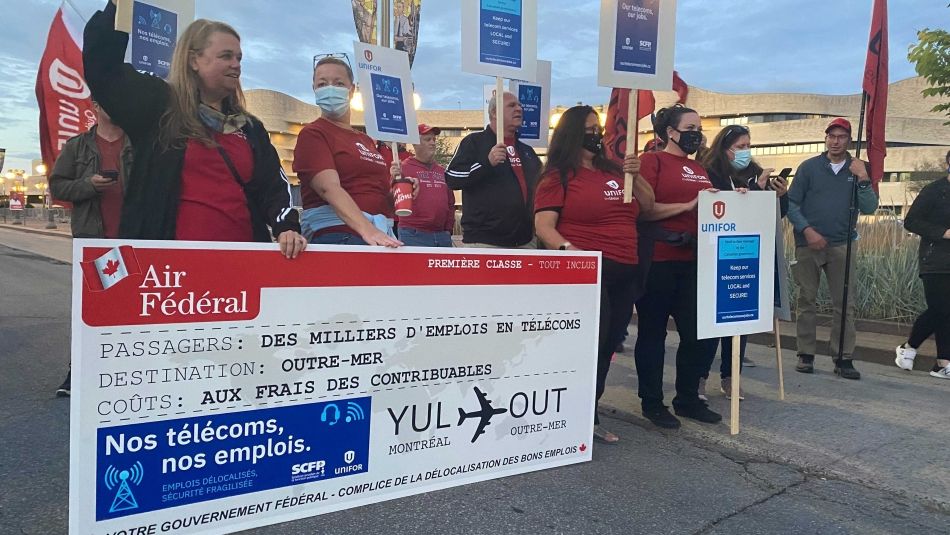
Share
Read the Letter in the Toronto Star: Canadian telecoms that accept subsidies must not be allowed to then export jobs overseas
We’ve all noticed when calling our provider for Internet or telephone service support: for many years now, almost all support calls for Canada’s big telecom companies are transferred overseas. And to make matters worse, technical and network management jobs are also being shipped abroad at an alarming rate.
Should it be normal for companies that receive hundreds of millions of dollars in subsidies on the one hand, use the other to replace thousands of good, union jobs here in Canada with low-wage and precarious labour across the globe?
As we head into the next and hopefully final phase of this pandemic, the next federal government has the responsibility to build back our economy by investing in local businesses and jobs, while using every opportunity to develop expertise and capacity here in Canada.
So should we accept that Canadian companies that generate record profits while benefiting from regulatory advantages exclusive to Canada be allowed to offshore good Canadian jobs?
For us, Canada’s two largest unions, the answer is a resounding no. And we’re not alone.
A survey carried out by CROP for CUPE in Quebec just before the pandemic showed that 86% of respondents agreed that companies that generate profits and receive subsidies should be barred from displacing jobs outside of our borders. The federal government has the power to make this change.
Record profits here to create wealth abroad
Just last year, the large telecom corporations generated more than 60 billion dollars in revenue, including nearly 7 billion dollars in profits. If the tens of thousands of jobs created overseas were brought back to Canada, you can just imagine how much workers’ salaries and income taxes would help spur local economies and businesses across the country. Allowing the big telecoms to carry on with this business model has a real cost for everyone.
An imbalance at the bargaining table
Large telecoms know they have an unfair advantage when workers negotiate with them to try to maintain jobs here in Canada: there is no federal anti-scab law. And because they have the possibility to use personnel offshore at any moment, they will always have the upper hand at the bargaining table, and it’s the Canadian economy that pays the price.
Protecting our data
There are also legitimate concerns around data privacy and protection. Big telecoms send the personal and financial data for millions of their clients overseas, to jurisdictions that do not have the necessarily have the same data and privacy protections as Canada. We are playing with fire and the next federal government must put a stop to this practice.
When it comes to telecoms in this election, we have one very clear demand: it is time to ban the offshoring of good, union jobs and personal data.
Jerry Dias, Unifor National President
Mark Hancock, National President, Canadian Union of Public Employees


